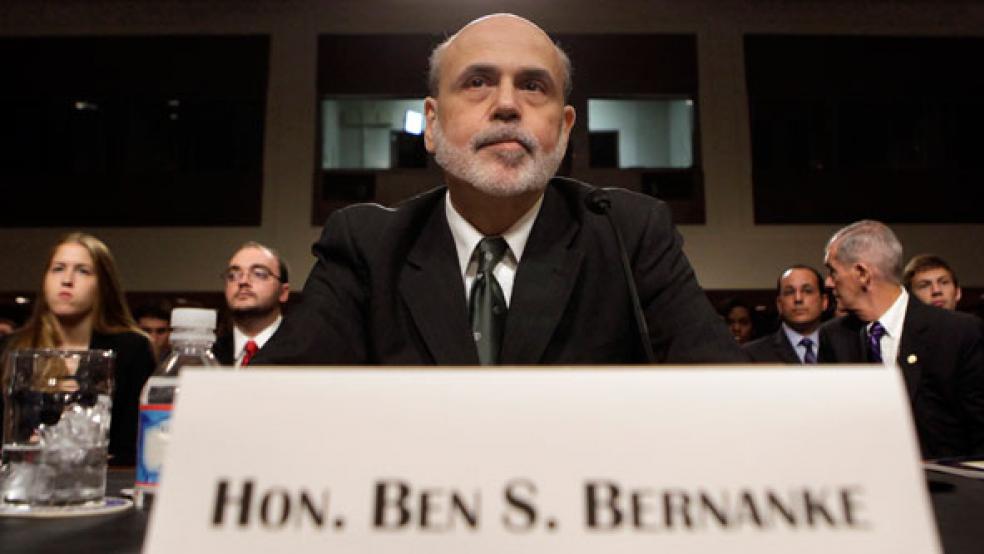The Federal Reserve on Wednesday said economic recovery had lost momentum so far this year, but stopped short of offering new monetary stimulus even as it signaled further bond buys could be in store.
Fed officials described the economy as having "decelerated somewhat," and reiterated their disappointment with the slow pace of progress in bringing down the nation's 8.2 percent jobless rate. The central bank, which disappointed market expectations by not extending further into the future its guidance for low rates until late 2014, nevertheless showed it was prepared to do more to support an ailing economy.
"The Committee will closely monitor incoming information on economic and financial developments and will provide additional accommodation as needed," the Fed said in its statement in a shift from its June meeting language. Richmond Fed President Jeffrey Lacker again dissented against the late-2014 timetable.
U.S. economic growth slowed to 1.5 percent in the second quarter as consumer spending faltered, and unemployment remains far too high for the comfort of a central bank that has a dual mandate to keep inflation low and employment high. Job growth slowed sharply in the second quarter to just 75,000 jobs per month from 226,000 in the first quarter.
A report on Wednesday showed U.S. companies added 163,000 jobs in July, more than expected. However, that survey, the ADP National Employment Report, does not carry as much weight as the government's more comprehensive labor market report due on Friday, which includes both public and private sector employment. Moreover, manufacturing data from the Insitute for Supply Management pointed to a second month of contraction.
The Fed meets just a day before a key meeting of the European Central Bank. ECB President Mario Draghi recently ratcheted up speculation of further ECB purchases of Italian and Spanish bonds by saying he would do "whatever it takes to preserve the euro."
Europe 's crisis is blamed for part of the U.S. slowdown, as trade between the two giant economies slows and fears of another financial crisis keep businesses and consumers on the defensive.
Against that grim backdrop, many think Fed Chairman Ben Bernanke could use his speech at the central bank's high-profile gathering in Jackson Hole, Wyoming, in August to send a strong message to markets. He used that forum in 2010 to communicate the Fed's intention to pursue a second round of quantitative easing, or QE2.
A third installment of QE would probably involve some component of housing debt as the Fed attempts to breathe fresh life into a housing sector that is finally showing some signs of healing.
Other tools Bernanke has signaled are under consideration include lowering the interest the Fed pays banks to park their reserves at the central bank, currently at 0.25 percent, which could induce them to boost lending; and pursuing a 'funding for lending' program like the one recently implemented by the Bank of England, whereby the Fed might provide cheap short-term loans to banks in exchange for guarantees that banks will resume lending to individuals and firms. The latter still requires some study, Bernanke said at his last press conference in June.
Stocks turned lower on Wednesday following comments from the Federal Reserve, which said the recovery had lost momentum so far this year, though it stopped short of offering new monetary stimulus.
However, the Fed did signal that further bond buys could be in store.
The Dow Jones industrial average <.DJI> was down 34.82 points, or 0.27 percent, at 12,973.86. The Standard & Poor's 500 Index <.SPX> was down 4.18 points, or 0.30 percent, at 1,375.14. The Nasdaq Composite Index <.IXIC> was down 17.28 points, or 0.59 percent, at 2,922.24.
Before the comments, equities had been trading near break-even levels throughout the session.


